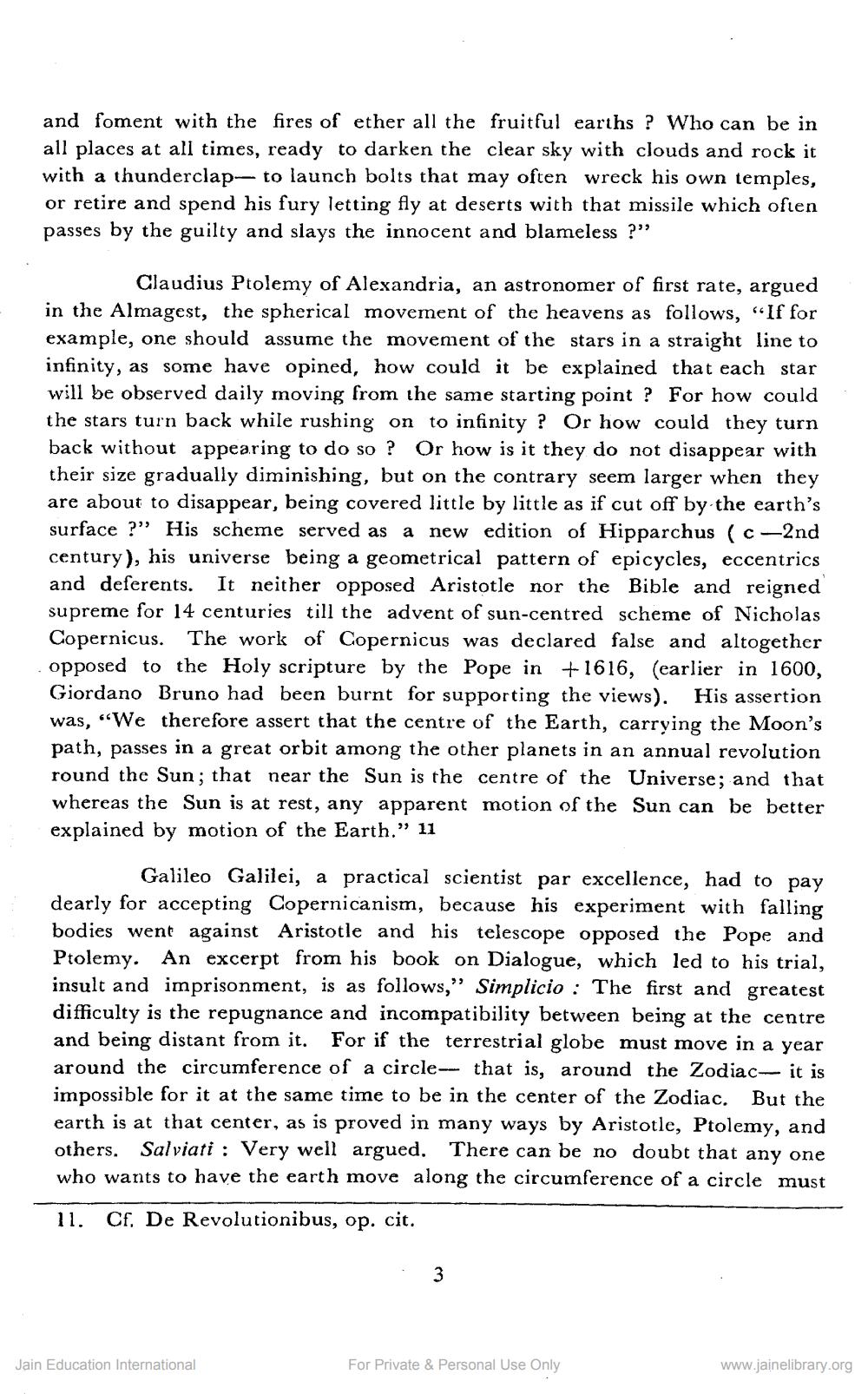________________
and foment with the fires of ether all the fruitful earths? Who can be in all places at all times, ready to darken the clear sky with clouds and rock it with a thunderclap- to launch bolts that may often wreck his own temples, or retire and spend his fury letting fly at deserts with that missile which often passes by the guilty and slays the innocent and blameless ?"
Claudius Ptolemy of Alexandria, an astronomer of first rate, argued in the Almagest, the spherical movement of the heavens as follows, "If for example, one should assume the movement of the stars in a straight line to infinity, as some have opined, how could it be explained that each star will be observed daily moving from the same starting point? For how could the stars turn back while rushing on to infinity? Or how could they turn back without appearing to do so? Or how is it they do not disappear with their size gradually diminishing, but on the contrary seem larger when they are about to disappear, being covered little by little as if cut off by the earth's surface ?" His scheme served as a new edition of Hipparchus (c-2nd century), his universe being a geometrical pattern of epicycles, eccentrics and deferents. It neither opposed Aristotle nor the Bible and reigned supreme for 14 centuries till the advent of sun-centred scheme of Nicholas Copernicus. The work of Copernicus was declared false and altogether opposed to the Holy scripture by the Pope in +1616, (earlier in 1600, Giordano Bruno had been burnt for supporting the views). His assertion was, "We therefore assert that the centre of the Earth, carrying the Moon's path, passes in a great orbit among the other planets in an annual revolution round the Sun; that near the Sun is the centre of the Universe; and that whereas the Sun is at rest, any apparent motion of the Sun can be better explained by motion of the Earth." 11
Galileo Galilei, a practical scientist par excellence, had to pay dearly for accepting Copernicanism, because his experiment with falling bodies went against Aristotle and his telescope opposed the Pope and Ptolemy. An excerpt from his book on Dialogue, which led to his trial, insult and imprisonment, is as follows," Simplicio: The first and greatest difficulty is the repugnance and incompatibility between being at the centre and being distant from it. For if the terrestrial globe must move in a year around the circumference of a circle- that is, around the Zodiac- it is impossible for it at the same time to be in the center of the Zodiac. But the earth is at that center, as is proved in many ways by Aristotle, Ptolemy, and others. Salviati: Very well argued. There can be no doubt that any one who wants to have the earth move along the circumference of a circle must
11.
Cf. De Revolutionibus, op. cit.
Jain Education International
3
For Private & Personal Use Only
www.jainelibrary.org




